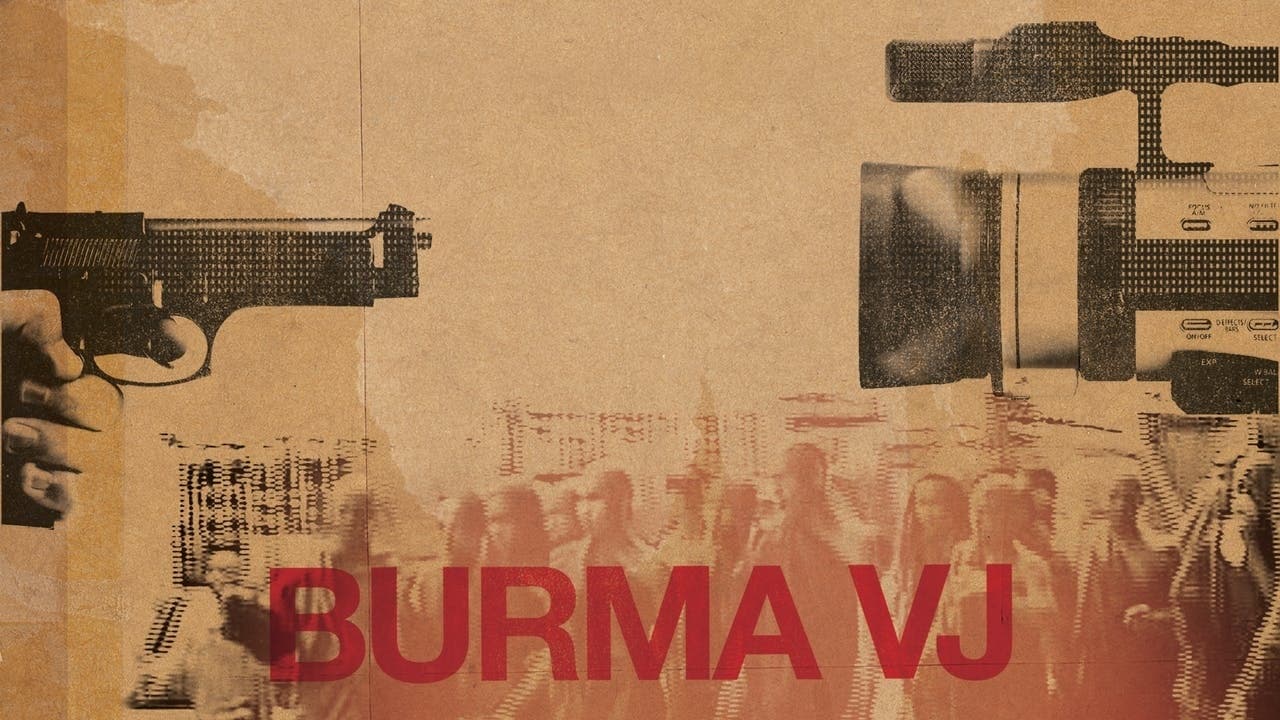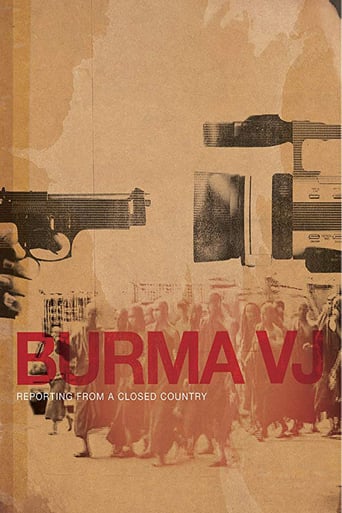

I knew very little about Myanmar prior to watching this film, but learnt much from it. It shows vividly how a military dictatorship can brutally suppress demonstrators who want to have more human rights and freedoms. This occurs in front of our eyes as brave camera people clandestinely film the "freedom movement" demonstrations. We see that as more and more people rally to the cause, the government and military react severely to suppress the manifestations, showing no tolerance whatsoever to their people. At the end of the documentary we learn that several of the camera people were arrested and their current whereabouts are unknown. Watch the special features for interviews with monks who bravely participated in the rallies and another short film on the civil war in Myanmar. If you are from a democratic country like myself, you realize how fortunate you are.
... View MoreIts 1988 in Burma. Students are leading a series of vociferous protests against the military junta. Years of economic mismanagement have been compounded by the sudden cancelling of some of the nation's currency notes - savings held in cash are instantly wiped out. The shooting of an engineering student in March leads only to louder and larger protests; a young woman by the name of Aung San Suu Kyi becomes the face of the democracy movement. Then, on September 18, the Army steps in - over 3,000 are killed or disappeared in one afternoon.Fast forward to 2007, and Joshua, the underground reporter and narrator of Ostergaard's 'Burma VJ' is getting deja vu. Economically on its knees, with high unemployment, rising inflation and subsidies being cut, and politically running out of options, the Burmese people are suffering. As one of a number of journalists working illegally for the Democratic Voice of Burma (DVB), a television and radio network-in-exile (based in Norway), Joshua risks his freedom and life to document conditions inside the country under the despotic rule of the junta. Once smuggled out of the country, images and videos are edited and streamed back into Burma via radio networks, or passed onto international news networks to raise awareness.In late 2007, Joshua and his DVB colleagues noticed a shift in popular opinion. The fears of a recurrence of 1988 were subsiding, a combination of the natural amnesia of time and the desperation of quotidian life. Small, isolated protests were occurring. They were quickly broken up by the junta's 'thugs' but not before being captured by the diligent DVB reporters. Then, and most famously, the monks took to the streets; occupying a precious place in Burmese and Buddhist society, monks are not to be harmed and therefore presented a literal human shield for the thousands of Burmese citizens who took to the streets to protest alongside them.The bloody conclusion to the uprising thereafter is well-known, as is the infamous execution-like shooting of the Japanese journalist Kenji Nagai. What Ostergaard adds to the saga however is to point out the courage of those behind the footage (it was a DVB reporter that captured the Nagai shooting for example, from a nearby building), who risk their lives so that the bravery of those protesting is not lost with the first firing of the army's guns. The 2007 uprising, however brutally put down, was a defeat for the junta due almost entirely to the reporting of DVB reporters, like Joshua, who put themselves in positions similar to Nagai in order to document the democratic desire of their people.Concluding Thought: Hard to know who to admire more, the monks willing to die for the sake of their people, or the reporters willing to die to document it.
... View MoreBurma VJ is a moving account of people struggling against a brutal dictatorship against all odds. Focusing on the footage taken by underground journalists within Burma / Myanmar during the 2007 protests by Buddhist monks and students. Starting from the protests' mundane origins in a gasoline price hike, it traces the uprising to its tragic conclusion in a crackdown by the military junta.The film itself is a testament to the importance of the Internet as a tool to combat oppression. Using cell phone cameras, the resistance journalists transmitted events as they happened to the world, creating a spectacle that other countries could not ignore.Moreover, Burma VJ gives an inside look at what it is like to live in a dictatorial society, where nothing we would recognize as freedom exists. This is a society where police agents regularly commingle with the populace without uniforms, and where being dragged into an unmarked car are genuine possibilities for the average person. In essence, the film gives viewers a peek into the court of the crimson king.Some reviewers have carped that a few scenes, mainly involving a liaison in Thailand, are reenactments, and that the film is not objective. However, in the face of military brutality by the junta, calls for objectivity seem weak and pusillanimous. Sometimes, direct statements are the best.
... View MoreBurma (where, ironically, George Orwell was born) is perhaps the country in the world that most resembles an Orwellian nightmare, under the grip of a repressive military dictatorship for over 40 years. In the west, we don't usually hear much about it, which is, one suspects, much as its rulers would like. But this absorbing documentary tells the story of a (sadly failed) revolt that took place in 2007, as well as the story of those who reported it in defiance of the authorities. And it's a shocking film to see: if the monks protest against the government, the government has no qualms about killing the monks. When the army (for whatever reason) refused to break ranks with its generals, the revolution was doomed; fundamentally, no-one want to die. The generals' propaganda would almost be funny if it wasn't backed up by the utter willingness to use lethal force, even in the face of peaceful protest. 'Burma VJ' is an important testament to the grim reality of life in the country; but at the end, even the resistance leaders are despairing of hope.
... View More